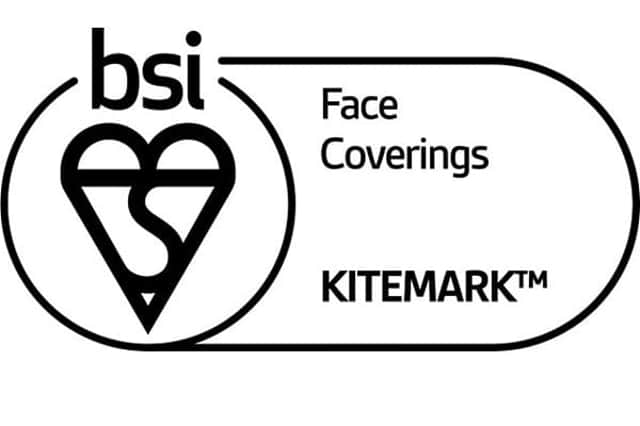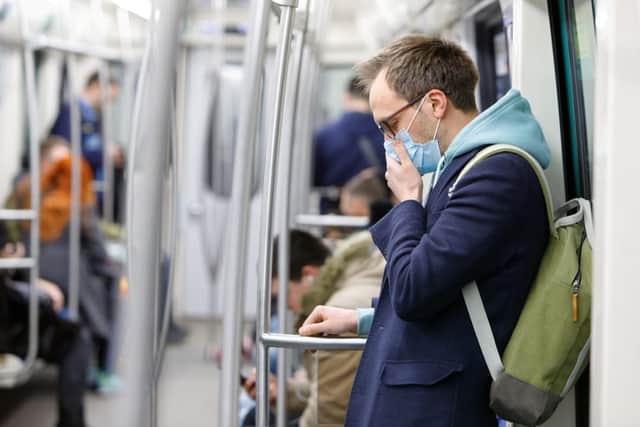This is the new Kitemark logo to check if your face mask is effective and breathable


A new Kitemark scheme is being launched to verify the quality of face coverings to ensure they have have adequate filtration, breathability and instructions.
BSI, the UK's the national standards body, said the scheme will assess face coverings to a technical specification requiring 70% particle filtration and "breathability" tests.
Advertisement
Hide AdAdvertisement
Hide AdIt will also provide "independent approval" of the quality of fitting and the instructions provided to a wearer on how to use the covering to reduce the chances of transmitting infection.
It is expected that the first face coverings with the Kitemark will be available from late July.
The move comes as the coronavirus pandemic makes them increasingly required in public life.


Where do face masks need to be worn?
By law face coverings must already be worn by passengers in England using public transport, and from July 24 they will also be mandatory in shops and supermarkets.
Advertisement
Hide AdAdvertisement
Hide AdFace coverings must already be worn in shops and on public transport in Scotland. They are also compulsory on public transport in Northern Ireland.
In Wales, face coverings will only become mandatory for public transport when new rules come into force on July 27.
According to Government guidance, face coverings are not classified as personal protective equipment (PPE), such as surgical masks used in medical settings, but instead are largely intended to protect others from infection, not the wearer.
They can be bought in reusable or single-use form and people can use scarves, bandanas, religious garments or handmade cloth coverings, as long as they safely cover the nose and mouth and fit securely around the side of the face.


Why is the Kitemark scheme needed?
Advertisement
Hide AdAdvertisement
Hide AdHoward Kerr, chief executive of BSI, said: "There is an overwhelming choice of face coverings available in the market.
"The challenge is knowing which claims they make are valid and whether they provide a basic level of protection to others.
"Face coverings that are independently assessed to schemes such as the Kitemark will allow consumers to make an informed and trusted decision."
Mr Kerr added: "As we continue to pull together as a country to combat the impact of Covid-19, it is important that we all take appropriate measures to protect one another.
Advertisement
Hide AdAdvertisement
Hide Ad"Whilst a face covering can never provide the same level of personal protection as a PPE or medical grade face mask, it is neither necessary nor appropriate for such products to be diverted to general consumer use.
"Providing consumers with confidence that their face covering provides some level of protection for those around them will help reduce the spread of the virus whilst we emerge from lockdown."
BSI said UK manufacturers Cookson and Clegg and Rototherm are among the first organisations in the final stages of assessment to achieve the new Kitemark.
Who is exempt from wearing a face covering?
There are a few exceptions to the rules about face coverings, for:
- children under 11
- people with certain disabilities
- people with breathing conditions
A version of this article was originally published on our sister title, The Star